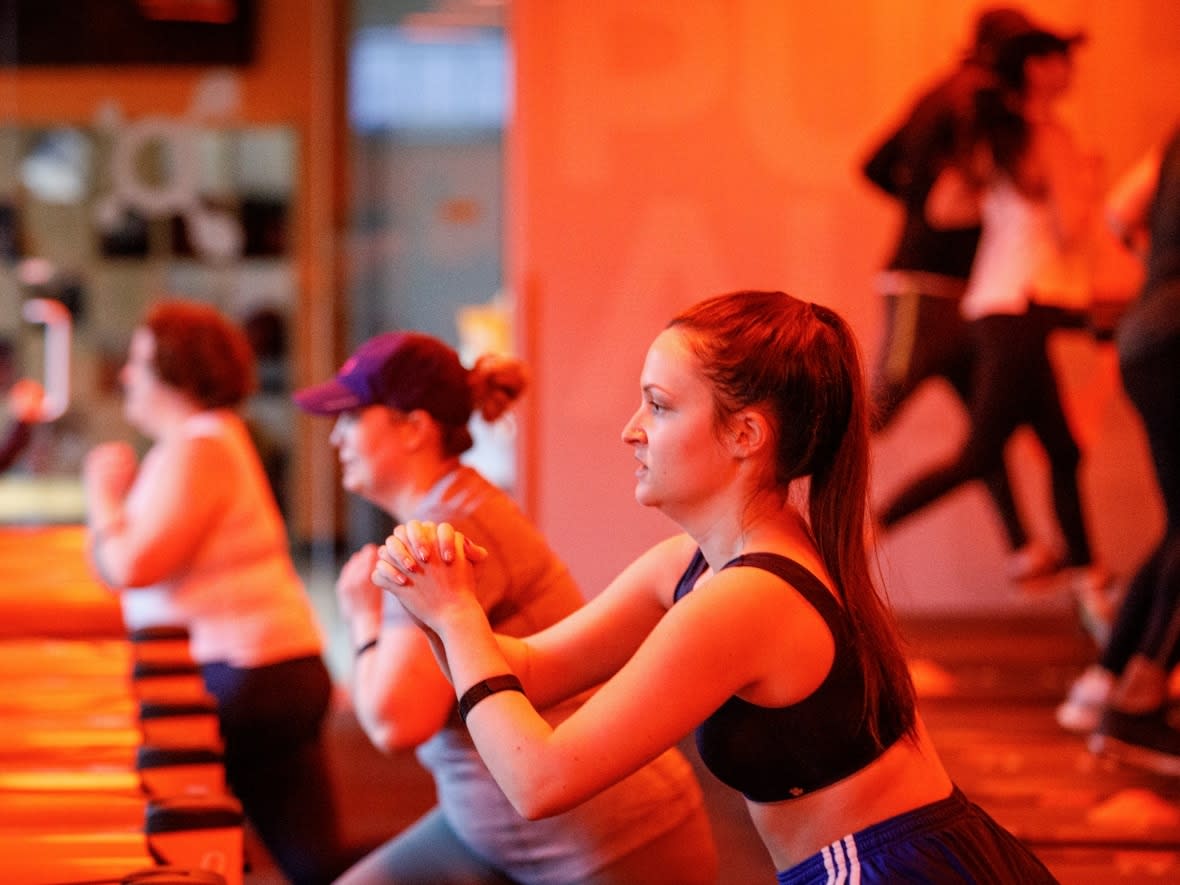Adding PST to gym memberships a 'slap in the face', says president of fitness franchise

Entertainment and working out at a gym will soon cost a little more for people in the province.
The Saskatchewan government is expanding the provincial sales tax (PST) base starting October, according to the 2022-23 budget.
This means people will have to pay an extra six per cent on admission and entertainment charges, including gym, golf and curling memberships.
"This is just a slap in the face," said Blake MacDonald, president of Orangetheory Fitness Canada.
"We should be part of the solution here, not lumped in with smoking and going to a football game."
In addition to announcing the PST on admissions and entertainment, the Saskatchewan government will also increase the tobacco tax by two cents per cigarette.
Fitness industry is surprised and 'outraged'
The fitness industry has already been hit hard during the pandemic due to restrictions, said MacDonald.
His company is barely back to 60 per cent of their pre-COVID revenue, he said. He thinks that instead of taxing the industry, the government should look into a fitness tax deduction.
"We're just a little baffled by the whole thing," he said.
"We are not out of the pandemic yet. The government needs to be thinking about how do we incentivize people to look after themselves better and reduce future health-care costs."
MacDonald referred to a 2021 report from the Agrifoods Analytics Lab at Dalhousie University which found that 42.3 per cent of Canadians said they had gained weight unintentionally during the pandemic.
The additional six per cent PST will make a difference for clients at Orangetheory Fitness studios, he said.
MacDonald is particularly concerned about the signal this move by the province sends to consumers, he said, especially now when some are still leery about getting out and coming to places like gyms.
"People are scratching their heads," he said.
"It's a mind boggling move for people who are … doing nothing other than trying to look after their health, wellness and well-being."

The Fitness Industry Council of Canada (FIC) released a similar message on Thursday.
The council is "outraged" over the province's announcement, it said in its release.
"This comes at a time where we are trying to get people back to the gym, to improve the health of Canadians, and to increase our physical activity levels," said Sara Hodson, president of the Fitness Industry Council of Canada in the release.
"Our physical and mental health has deteriorated over the last two years and physical activity is essential to reverse this."
Province will also apply PST to museum admissions
The tax is also being added to hunting and fishing guide fees and outfitter services, as well as tickets for fairs, rodeos, conferences, trade shows and arts and crafts shows.
It will also be tacked on to admission fees to movie theatres, professional theatre, museums, zoos and historical sites.
"We're still assessing what the potential impact is going to be with this change in PST to our programs and services," said Joan Kanigan, CEO of the Western Development Museum (WDM).
"Obviously, there's going to be a slight increase in admission charges as we add the PST to those costs."
The Western Development Museum has four locations in Saskatchewan – Moose Jaw, North Battleford, Saskatoon and Yorkton.
Many of the WDM's programs might not be affected because they focus on children under 14 in school, said Kanigan.

The Western Development Museum, which is an arms-length agency of the province, has already started to look for ways of keeping barriers low for people who want to access the museums, according to its CEO.
This also includes online programming for Saskatchewan residents around the province, she said.
"We want everybody to be able to come and enjoy the WDM," said Kanigan.
"With inflation and rising costs, people are going to have to be a lot more thoughtful about how and where they spend their money and what they choose to do."
Museums across Saskatchewan might be affected differently by the potential PST on admission, she said, especially if they are smaller.
"Businesses and organizations that qualify as small suppliers for GST purposes and, as such, do not collect GST on taxable sales of admissions, entertainment and recreation, are also exempt from the collection of PST on these sales," explains the province in its PST information bulletin.
In its budget the government also said fundraisers where part of the cost of admission can reasonably be considered a donation to a charity are exempt.
In addition, tickets for school, university or minor league sports, amateur theatre productions that do not pay the artists, and services for certain recreational programs like sports or arts for children 14 years of age or under, operated by a public service body, will be exempt from the PST.
"It doesn't apply to your small town rodeos or events," said Finance Minister Donna Harpauer on Wednesday. "It's your larger events."
She said the expansion will generate about $21 million annually and targets events and services already taxed under the federal goods and services tax (GST).


